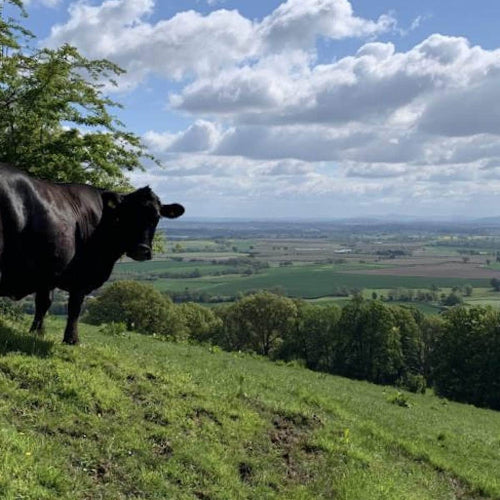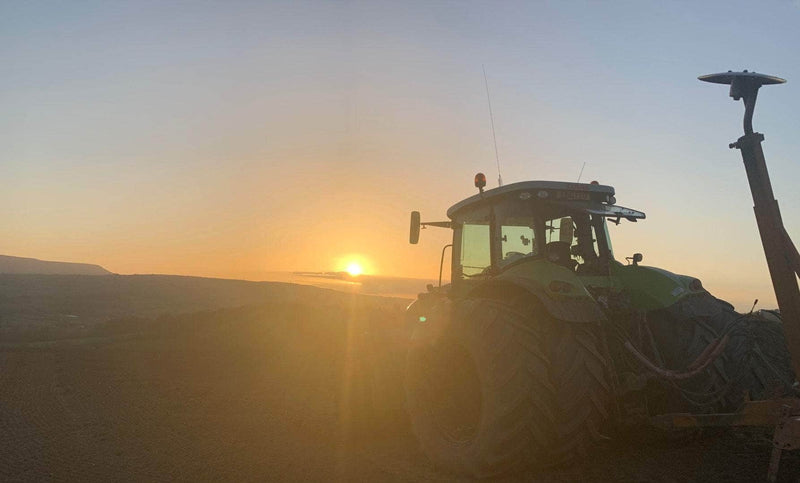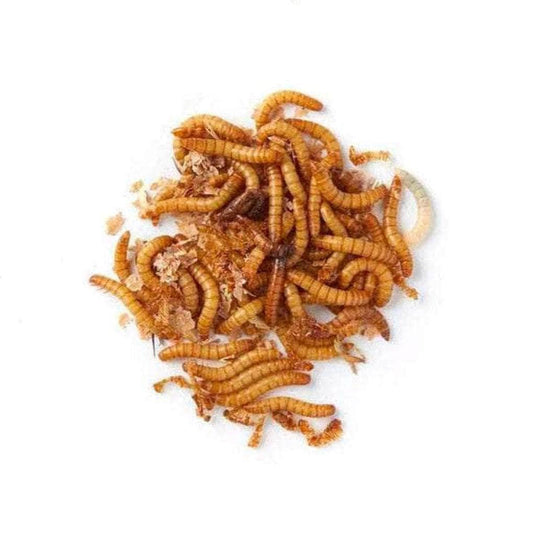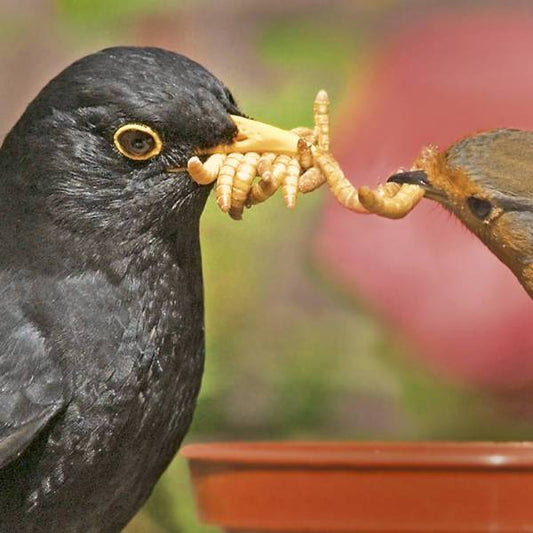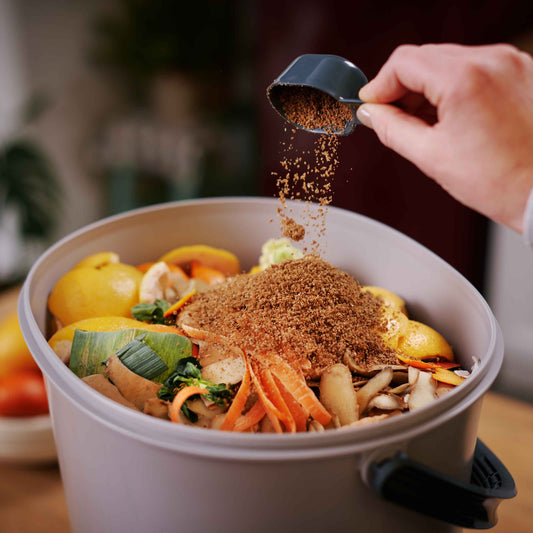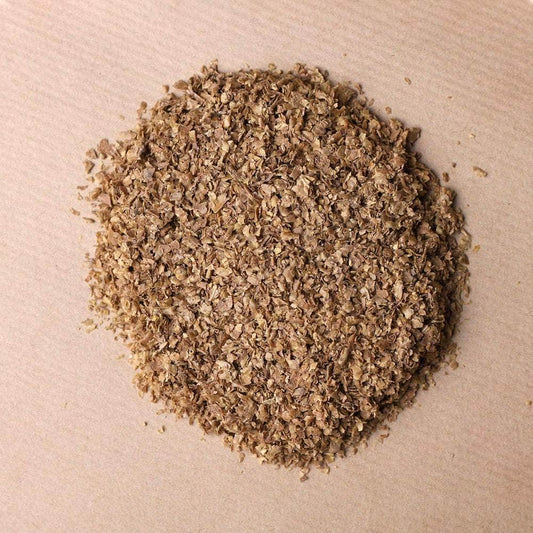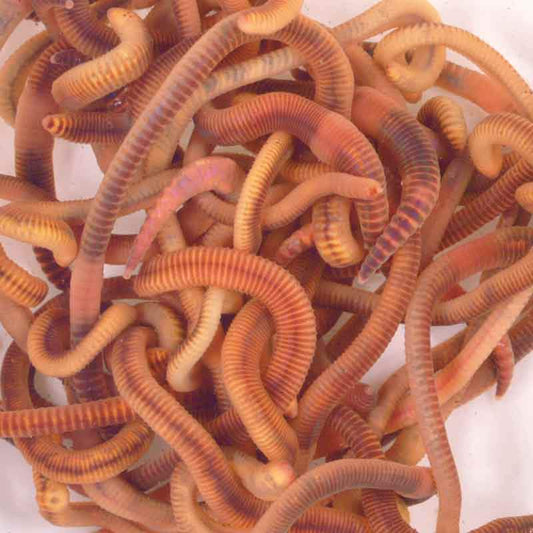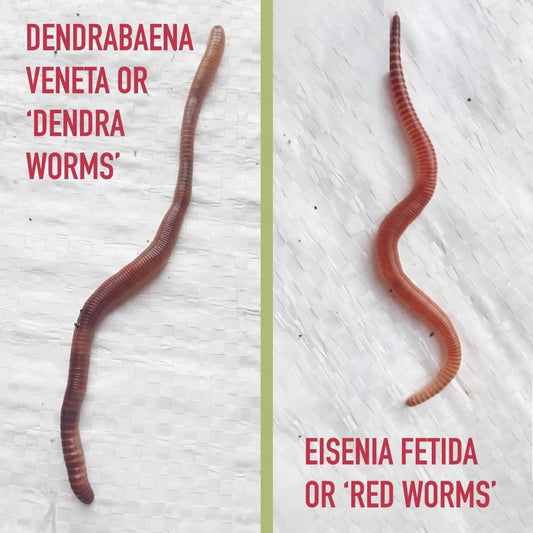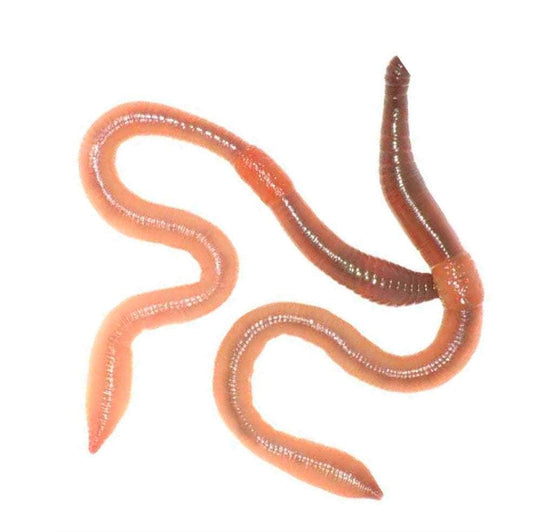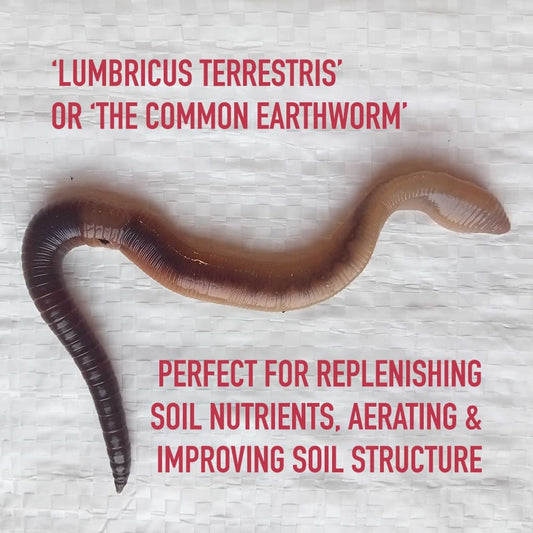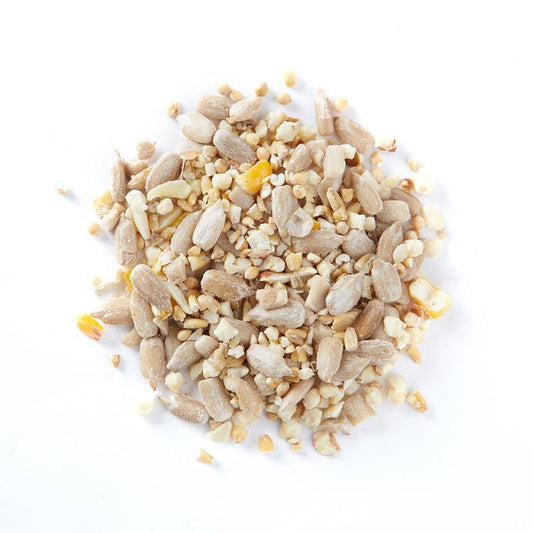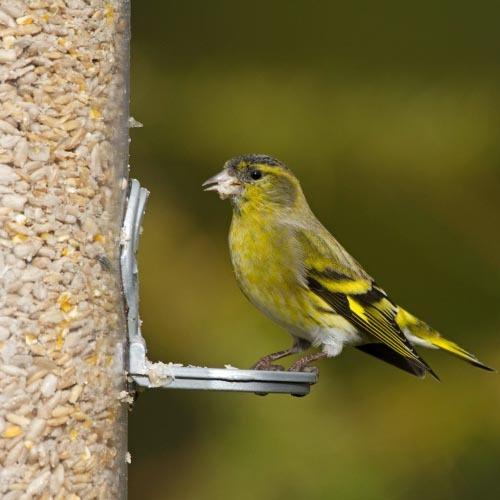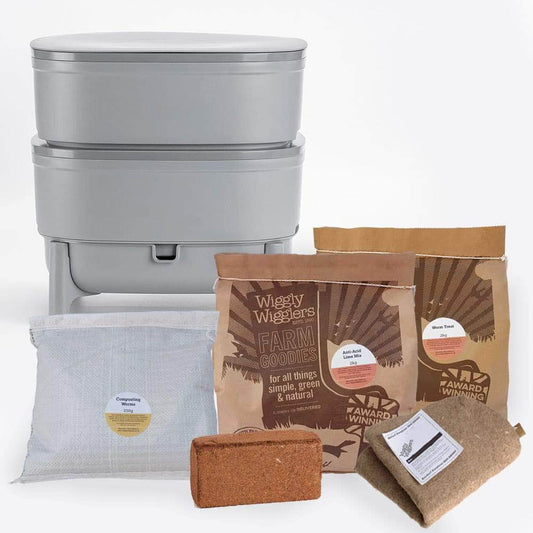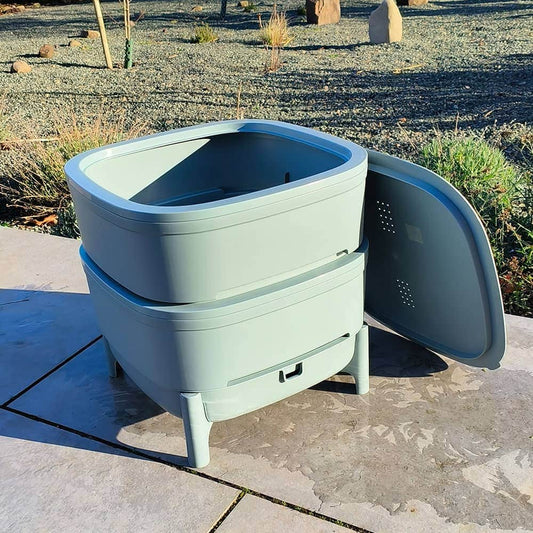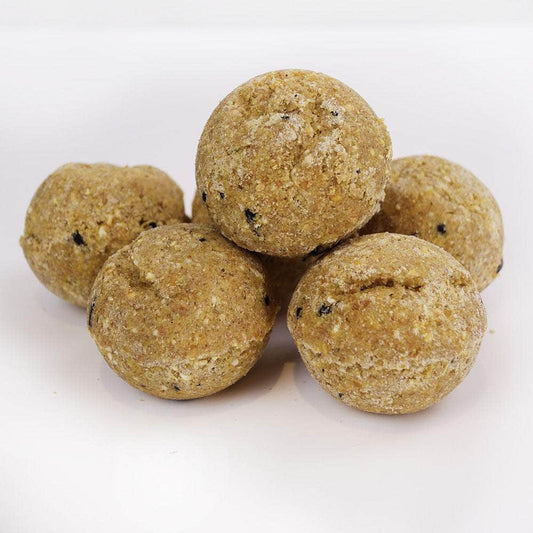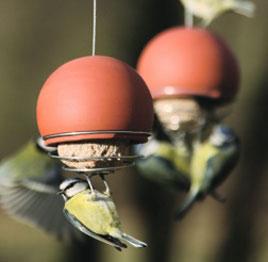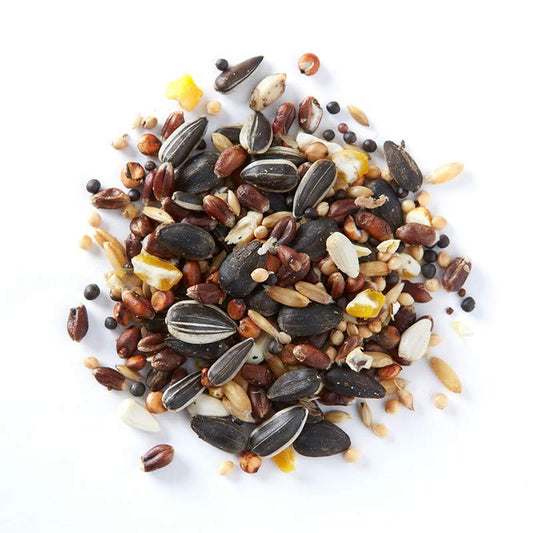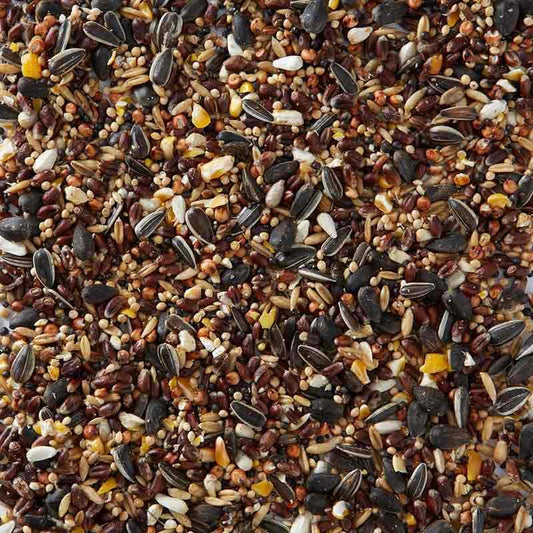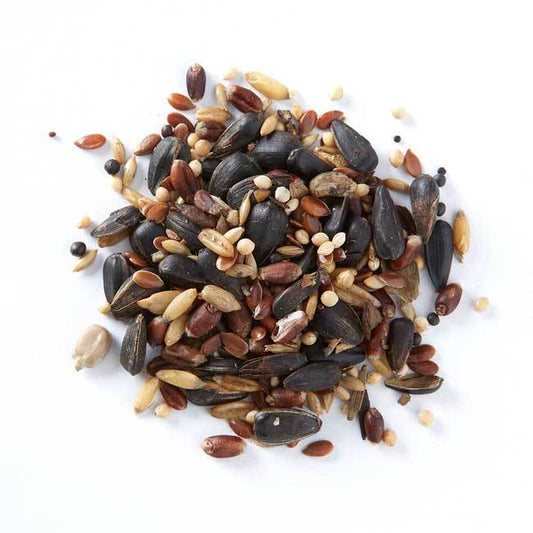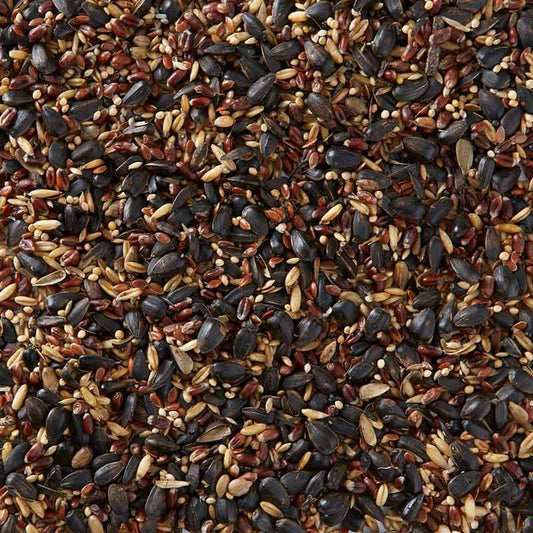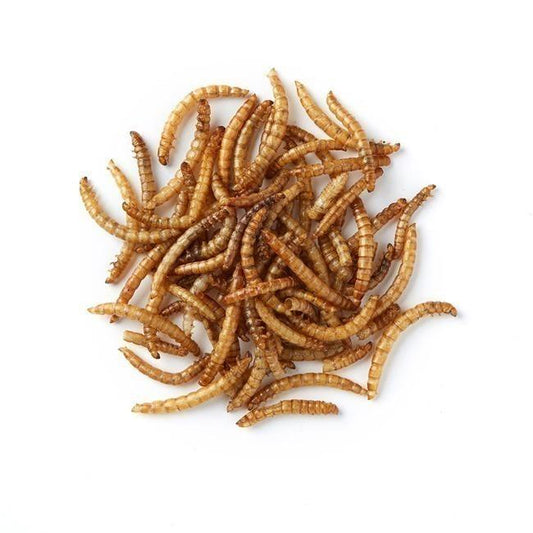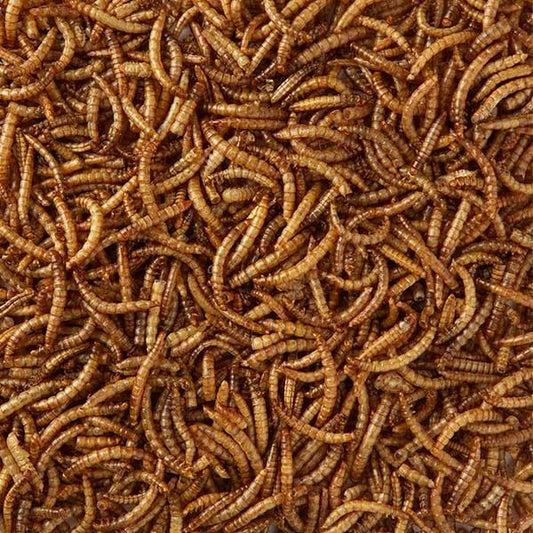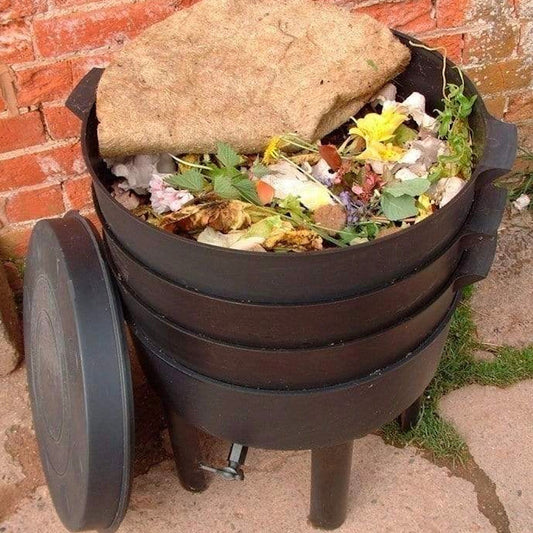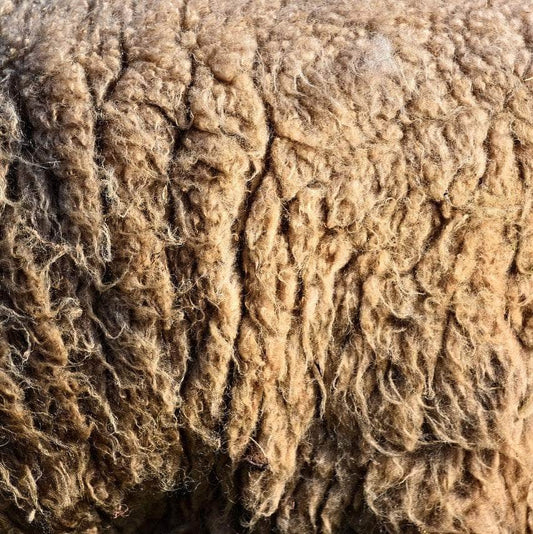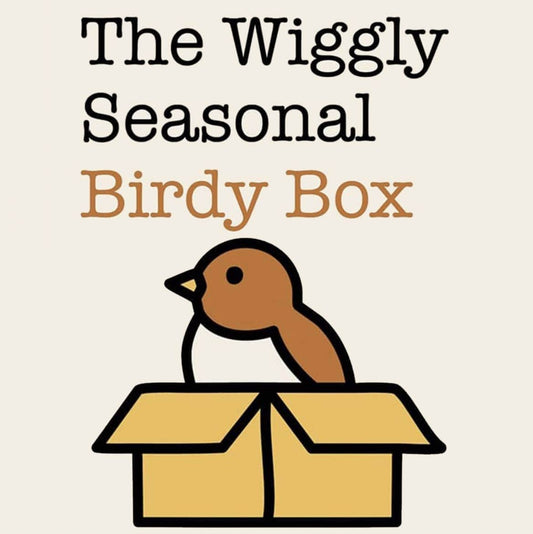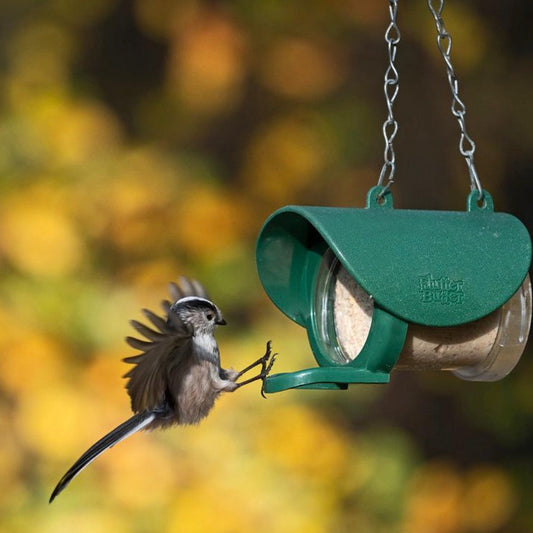Why Live Mealworms Are a Must-Have
-
Packed with Protein & Fat: Live mealworms contain over 50% protein, crucial for growth and feather production, and natural fats for sustained energy.
-
Hydration for Nestlings: Birds on the nest get their only source of water from the moisture in their food. Live mealworms provide vital hydration, unlike seeds, suet, or dried alternatives.
-
DEFRA Approved: Safe for poultry. Live mealworms are DEFRA-approved as chicken feed. Unlike dried mealworms, which can carry contamination risks, live mealworms are safe, fresh, and full of benefits.
-
Support Breeding Success: Feeding live mealworms during the breeding season helps nestlings and fledglings thrive, promoting stronger, healthier bird populations.
Since 2006, we’ve been keeping and supplying live mealworms right here at Wiggly Wigglers, bringing a sustainable and natural feeding solution to garden birds, hens, and wildlife enthusiasts. We’ve ditched single-use plastic tubs in favour of plain paper bags, which are fully compostable and create far less waste—better for the planet and perfect for eco-conscious customers. Our mealworms are cared for with fresh bran added regularly and enjoy snacking on favourites like carrots and similar fresh veg. Every order is weighed and bagged by hand on our farm in Lower Blakemere, ensuring peak freshness before being dispatched First Class or Next Day to your door.
Key Benefits
-
Sustainability First: Compostable paper bags minimise waste and reduce environmental impact.
-
Freshness Guaranteed: Hand-weighed and bagged to order, with quick dispatch from the farm.
-
Top-Quality Care: Mealworms are fed fresh bran and healthy snacks, ensuring their quality for your use.
Why Feed Live Mealworms Year-Round?
Feeding live mealworms isn’t just for the breeding season—it’s beneficial all year round, especially during:
- Moulting Season:
- Wild birds and hens shed old feathers and grow new ones in late summer and autumn.
- Feathers make up 4–12% of a bird's body weight, requiring a huge amount of protein to regrow. Live mealworms, with over 50% protein, are the perfect supplement to support this energy-intensive process.
- Hens, in particular, benefit from live mealworms during moulting as the extra protein aids in quicker recovery and keeps them healthy.
- Breeding Season:
- Live mealworms provide hydration and protein for nestlings and fledglings, ensuring they grow strong and thrive.
- Extreme Weather Conditions:
- During dry spells, ground-feeding birds like blackbirds struggle to find earthworms. Live mealworms provide a vital source of moisture and nutrition.
- In winter, when natural invertebrates are scarce, live mealworms help birds maintain energy levels and survive the cold.
How to Feed Live Mealworms
- Serving Suggestions:
- Put out a handful in the morning in a steep sided shallow container or feeder. This will supply a protein-rich breakfast that will energise your birds for the day.
- Use a steep-sided, shallow dish to keep mealworms contained while making them easy for birds to access. (You can also go for a caged feeder or one with an adjustable dome to keep larger birds out)
- Provide mealworms regularly during breeding, moulting, and in extreme weather (cold, droughts) when natural invertebrates are scarce.
- Use Appropriate Feeders:
-
Caged feeders protect mealworms for smaller birds like robins and sparrows, keeping larger species at bay.
-
Open feeders or ground dishes allow ground-feeding birds like blackbirds to enjoy them too.
How to Care for Your Mealworms
1. Decant into a Suitable Container
When your mealworms arrive in their recyclable paper bag, transfer them into a shallow container (such as a Tupperware box) with ventilation holes. This keeps them safe and allows airflow to prevent mould and overheating.
2. Provide a Nutritious Diet
Keep your mealworms healthy and plump with:
-
Bran or Porridge Oats: A nutritious bedding and food source. Just add a handful or so at a time.
-
Fresh Slices of Apple, Carrot, or Potato: These provide hydration and extra nutrients, ensuring the mealworms stay fresh and full of goodness for your birds.
3. Maintain Cleanliness
-
Sieve Out Frass Regularly: Frass is the waste and shed skins produced by mealworms. Removing it prevents bacteria build-up and keeps your worms thriving. Use a fine mesh sieve to separate mealworms from frass.
- Ensure no frass remains when serving mealworms to your birds. This keeps their feeding station clean and prevents contamination.
4. Optimal Storage Conditions
- Store mealworms at 8–10°C (a cool shed or refrigerator vegetable drawer works well).
- Avoid extreme temperatures. Keep them cool to slow their development into beetles, but don’t allow them to freeze.
What Is Frass, and How Can You Use It?
Frass is the nutrient-rich by-product of mealworms, made up of droppings and shed exoskeletons. It’s a fantastic, natural fertiliser for your garden, rich in:
-
Nitrogen: Promotes lush, leafy growth.
-
Phosphorus: Encourages strong roots.
-
Potassium: Enhances plant resilience and overall health.
How to Use It: Sprinkle frass on your soil or mix it into your compost to enrich your garden naturally. It’s perfect for flowers, vegetables, and even lawns!
The Wiggly Wigglers Difference
-
Eco-Friendly Packaging: Delivered in simple paper bags, our mealworms are easy to handle, and the packaging can be composted or recycled.
-
Fresh and Ethical: We source our mealworms from trusted farms who ensure a vegetarian diet and absolutely no growth hormones, ensuring they’re raised responsibly with no compromise on quality.
-
Expertise You Can Trust: With years of experience in supporting wildlife, we’ve fine-tuned every aspect of our live mealworm offering to provide the very best for your birds and chickens.
FAQs About Live Mealworms
Q: Why are live mealworms better than dried?
A: Live mealworms provide essential hydration and are DEFRA-approved for poultry. Dried mealworms lack moisture and are not approved due to potential contamination risks.
Q: How do I store live mealworms?
A: Keep them in a shallow, ventilated container at 8–10°C. Provide bran or oats as bedding and food, and add fresh carrot, apple, or potato slices for hydration.
Q: Can I use mealworm frass?
A: Yes! Frass is a nutrient-packed organic fertiliser that’s perfect for enhancing your garden soil.
Q: How often should I feed mealworms to my birds?
A: Daily feeding is ideal, especially during breeding, moulting, or harsh weather. Offer a small handful in the morning and refill as needed.
Q: Are live mealworms safe for chickens?
A: Absolutely. They’re DEFRA-approved, packed with protein, and a great treat during moulting to support feather regrowth.
Q: How do I keep mealworms from turning into beetles?
A: Store them in cool conditions and sieve out any pupae regularly.
Order Your Live Mealworms Today!
With Wiggly Wigglers’ Live Mealworms, you’re not just feeding your birds—you’re supporting their health, hydration, and breeding success. Order now to provide your feathered friends with the very best, while enjoying the satisfaction of ethical sourcing and eco-friendly packaging. Perfect for garden birds, chickens, and even your garden soil—there’s no better choice for live mealworms.

















